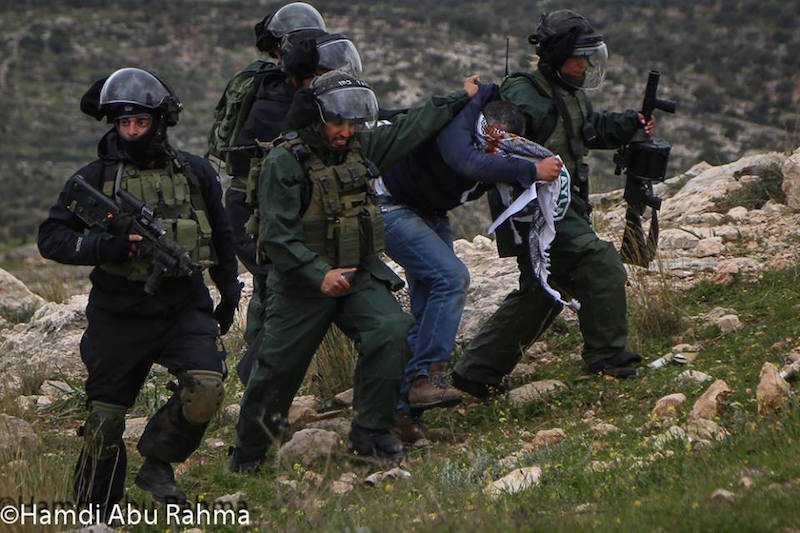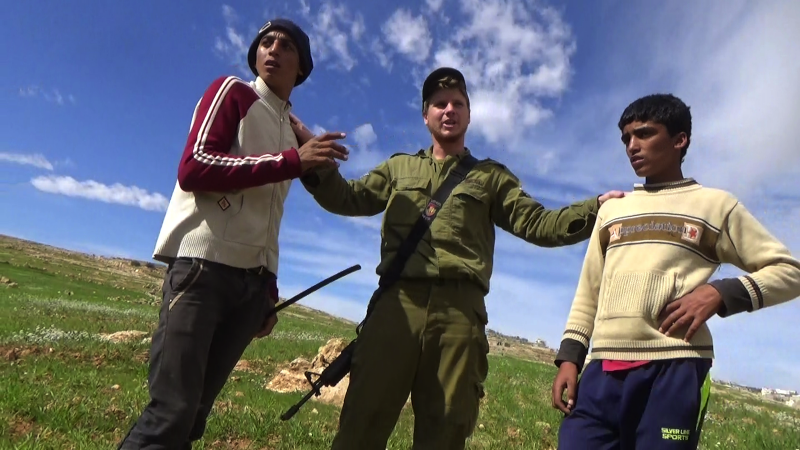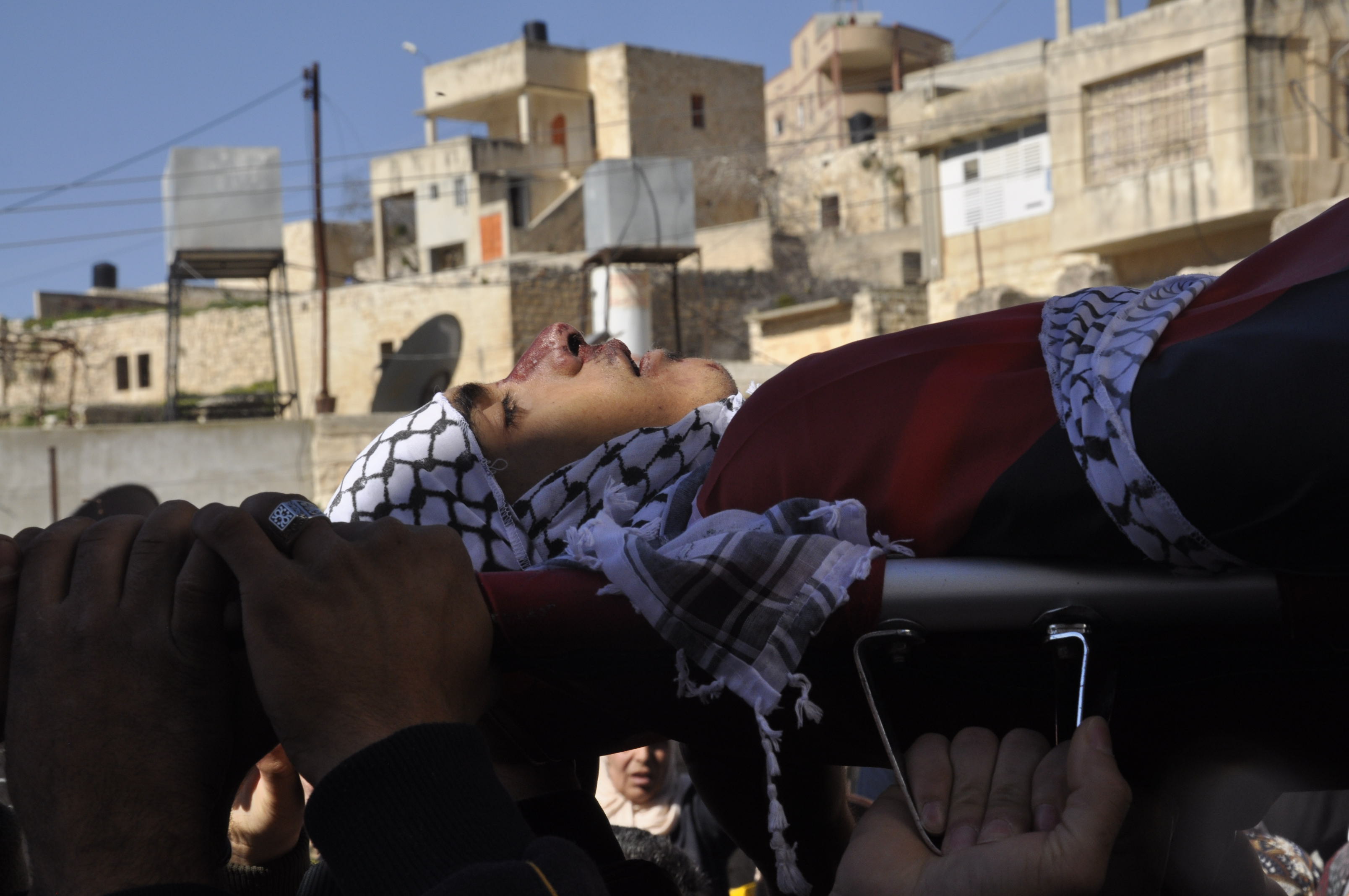Tag: Arrests
-
Demonstration in Bil’in honoring slain US citizens faces attacks and arrests by Israeli forces
17 February 2015 | International Solidarity Movement, Ramallah team | Bil’in, Occupied Palestine On Friday 13th February, Israeli forces assaulted the demonstration in Bil’in with hundreds of tear gas rounds, dozens of stun grenades and pepper spray, injuring eleven Palestinian, Israeli and international demonstrators. Member of the Bil’in popular committee Mohammed Khatib and a UK citizen and solidarity…
-
Two Palestinian shepherds arrested in South Hebron Hills
8th February 2015 | Operation Dove | South Hebron Hills, Occupied Palestine On the morning of February 6, Israeli soldiers arrested two Palestinian shepherds, one of them aged sixteen. The soldiers tried to arrest another Palestinian shepherd but villagers prevented the arrest by popular nonviolent action. At about 10:40 a.m. four Palestinian shepherds were grazing their flocks…
-
19-year-old shot and killed by Israeli forces in Burin
3rd February 2015 | International Solidarity Movement, Nablus Team | Burin, Occupied Palestine On the evening of January 31, 2015, Israeli soldiers shot and killed Ahmad Ibrahim Najar, a 19-year-old Palestinian from the village of Burin (Nablus region). In the attack, Israeli forces also injured 18-year-old Mohammed Raed Asaos. Mohammed and a third man, Abdulrahman…



